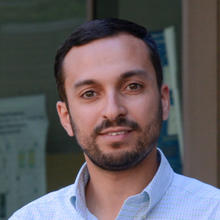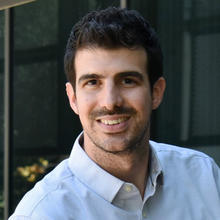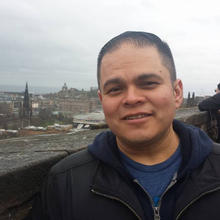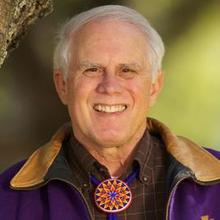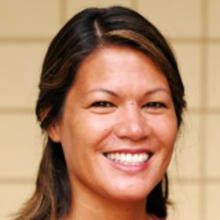Several UC Riverside faculty are recipients of the UC 2021 Multicampus Research Programs and Initiatives, or MRPI, awards.
Research proposals are multicampus collaborations and include several cross-discipline projects.
MRPI awards are given out by the UC Office of the President. This year, 15 proposals from a pool of 94 were selected, totaling more than $18 million over four years.
“Thank you to all those who participated in the competition and congratulations to the awardees,” said Rodolfo Torres, vice chancellor of research and economic development. “I can tell you that this was a very competitive solicitation and that UCR did very well in it. My best wishes for the research and scholarly work to be supported by these awards.”
UCR will be the host campus for two principal investigators, Boris Bar, professor of entomology; and Roya Zandi, professor of physics and astronomy. Six UCR faculty are co-principal investigators; for several projects, multiple UCR researchers will be collaborating.
Meet the co-principal investigators:
Miguel Arratia, assistant professor of physics and astronomy
Arratia is a co-principal investigator on a UC Berkeley-led MRPI grant enabling the “California Consortium at the Electron-Ion Collider.”
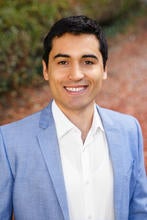
“Our consortium of four UC campuses and three national laboratories will work on the future Electron-Ion Collider,” said Arratia, who will lead the UCR effort within the UC consortium. “Our goal for the next four years is to design the detectors, develop needed technologies, and initiate construction projects. This MRPI is an early investment to strategically position UC in this multidecade long project.”
The consortium will develop science goals for the future Electron-Ion Collider, or EIC. The EIC will use electrons to image quarks and gluons inside nuclei with unprecedented precision. Recently, the Department of Energy approved construction of the EIC at a cost of approximately $2 billion.
Arratia said a call for proposals for EIC experiments will be issued soon.
“We will respond as a consortium to design and begin construction of experiments over the next four years,” he said. “This will attract construction funds to California. Moreover, UC students will get to design and construct large-scale detectors using state-of-the-art technologies to analyze petabyte-scale datasets with supercomputers at Lawrence Berkeley National Laboratory and Lawrence Livermore National Laboratory.”
The consortium has received funding of about $1.8 million for four years, of which $750,000 is allotted to UCR.
At UCR, Arratia will be joined by Kenneth Barish and Richard Seto, both professors of physics and astronomy.
The EIC will start running in the next decade and continue, most likely, until the middle of the century.
Ahmed Eldawy, assistant professor of Computer Science and Engineering
Eldawy is a co-principal investigator on a UC Los Angeles-led MRPI grant titled “California Informatics for Equitable Disaster Response and Recovery.”
This project will study the impact of natural hazards in California, such as floods and earthquakes, on the economy and the livelihood of Californians.
In particular, this project will pay attention to the unequal impact of natural hazards on disadvantaged communities. The proposed approach will combine multivariate data sources including spending reports, demographics, community photographs, and satellite imagery to study the physical damage on the buildings and other infrastructure as well as the socioeconomic impact on people.
Toward that goal, the team will propose a new metric of disaster impact that combines physical damage and social impact. To apply this metric, the project will employ computer vision, natural-language processing, and other machine-learning algorithms to estimate the damage and gain insights into changes in the socioeconomic patterns of populations affected by a natural hazard event.
At the core of this project, UCR will contribute by providing a computationally efficient infrastructure that will combine heterogeneous geospatial data sources such as satellite images, demographic data, geotagged photographs, and economic data to study their effect under natural hazards.
This project will focus on the recent flood and earthquake events in California, but the proposed methods can be generalized to other natural hazards such as wildfires.
Konstantinos Karydis, assistant professor of electrical and computer engineering
Karydis is the lead of the AgTech thrust. His primary focus is on robotic-based remote sample acquisition and analysis.
He will be joined by Amit K. Roy-Chowdhury, professor and chair of electrical and computer engineering, whose primary focus is on visual sensing for autonomous systems in the agricultural field; Peggy A. Mauk, director of agricultural operations, whose primary focus is on labor and novel agricultural technology adoption; John Cioffi, associate professor of political science, whose primary focus is on legal underlying and emerging issues.
California’s food system is vulnerable to climate change, regulatory changes, water availability and agricultural workforce shortages, and remains fragile to rare events like the COVID-19 pandemic.
To address these challenges, the Labor and Automation in California Agriculture, or LACA, MRPI project will develop a pathway to sustainable food systems. The LACA team blends the right mix of experience and early career perspectives.
It comprises a highly interdisciplinary group spanning four UC campuses including Riverside, Davis, Berkeley, and Merced as the host campus with principal investigator Thomas Harmon. Joining this team is also UC Agriculture and Natural Resources, or ANR. Partnering with growers, workers, and agronomists, LACA’s goal is to create a new model for agricultural technology, which centers on the grower and worker while enhancing productivity and being cognizant of environmental sustainability.
To this end, the project extends in four distinct yet interconnected thrusts: 1) AgTech, for developing and testing novel agricultural robotics systems; 2) environmental sustainability, for developing and testing novel environmental sustainability tools and functions; 3) labor, to examine the future of farm work, barriers to adoption, and California farm labor markets; and 4) underlying and emerging Issues, to address new policy, legal, agroeconomic, and social issues emerging by the tighter integration of technology in the agricultural field.
Richard Rodriguez, associate professor of media and cultural studies
Rodriguez is a co-principal investigator on a UC Santa Barbara-led MRPI grant. He will be working on a project titled “The Global Latinidades Project: Globalizing Latinx Studies for the Next Millennium.”
Rodriguez will explore Transatlantic Latinidades across a wide range of topics and themes, including popular musical fusions, transnational labor politics, and queer cultural politics.
In 2018, Rodriguez created the UC Riverside Faculty-Led Education Abroad program which guides faculty and student cross-cultural exchanges and colloquia in the United States and United Kingdom, with a particular focus on popular culture studies in Edinburgh, Scotland.
Through this MRPI, Rodriguez will expand the existing program into an intensive workshop on graduate student research and professional development with the goal of graduate student contributions to the MRPI colloquia, planned anthologies, and additional publication and scholarly activities.
Rodriguez has published the groundbreaking book, “Next of Kin: The Family in Chicano/a Cultural Politics,” which won the 2011 National Chicana/o Studies Book Award, and he has two books in progress: “Latino/U.K.: Transatlantic Intimacies in Post-Punk Cultures,” and “Undocumented Desires: Sexuality, Space, and the Politics of Latino Male Representation.” He has taught courses in Latino/a/x literary and cultural studies, Chicano/a/x theory and methodology, transatlantic popular cultures, and queer of color critique.
With the Global Latinidades MRPI, he will develop new courses on transnational popular culture and Latino/a/x identities that explore how multiethnic exchanges occur through unexpected modes of popular culture such as punk music. Rodriguez has received fellowships and grants from the Illinois Program for Research in the Humanities. His MRPI team will target funding from the National Endowment for the Humanities and private foundations to expand their transatlantic research capabilities and discoveries of new Latinidades arising from a new era of contact zone encounters between Europe and the Americas.
Clifford Trafzer, distinguished professor of history and Rupert Costo Chair in Native American Indian Affairs
Trafzer is a co-principal investigator on a UCLA -led MRPI grant. He will be working on a project titled “Centering Tribal Stories of Cultural Preservation in Difficult Times.”
During the course of this grant, Trafzer will also work with UCR faculty members Mark Minch de Leon, assistant professor of English; and Latipa, associate professor of media and cultural studies. This team will interview 25 Native Americans from Southern California and Western Arizona about the importance of Indian tribes repatriating their ancestors for reburial in their homelands.
“Working together, we will arrange to interview Cahuilla, Serrano, Tongva, Luiseño, Mojave, Chemehuevi, and other American Indians about the significance of repatriating ancestors currently stored in boxes on various campuses of the University of California, including UC Riverside,” Trafzer said.
The team will contact potential indigenous consultants and ask permission to travel to their residences where they will interview men and women with knowledge of tribal beliefs about the cultural and social impact of the university keeping human remains and not returning them to tribal people for reburial.
The team will explore the social, health, and cultural consequences of individuals and tribes having their ancestors taken without permission and kept under the control of a foreign entity (University of California) in violation of federal and state laws requiring repatriation of human remains and grave goods to Native Americans.
Tribal people generally believe they have an obligation to care for the dead and to inter them properly in accordance with tribal tradition. Excavation of skeletal remains and storage in boxes away from their homelands constitutes a violation of tribal law and cultural commandments handed down over generations by tribal teachers and leaders.
With the permission of tribal participants, the team will propose to interview several Native Americans, record their responses, and use their responses in future curriculum. These interviews will form the basis for a short film on tribal repatriation.
The UCR team will also invite a few California Indian consultants to campus to provide lectures about their cultural heritage surrounding the proper treatment of the ancestors and their importance in contemporary tribal society in California and other regions of North America.
Juliet McMullin, interim dean, College of Humanities Arts and Social Sciences
McMullin is co-principal investigator on a UC Irvine-led MRPI grant titled “Living Through Upheaval: The University of California Humanities Initiative.”
McMullin said the project consists of three research platforms:
Future of the humanities and the university
As COVID-19 reveals, the university is a robust social infrastructure providing medical and support services in time of need, research addressing pressing social issues, longer-term challenges, and vital learning and civic platforms.
Researchers will address a 21st century humanistic research agenda and evolving curricula for graduates and undergraduates to help respond effectively to widespread upheavals: climate change, mass migrations, catastrophic natural events, and COVID-19-like pandemics.
They will answer a series of questions including: What cultural, conceptual, social, and technological competencies best enable societies to address such upheavals productively and adaptively? What likely sources, forces, and forms of discrimination face vulnerable populations in times of upheaval? What historical, cross-cultural experiences, ideas, and models can we draw on?
Literacies and leadership in a diverse society
Leadership today demands innovation in forms and contents of our literacy. Traditional and new literacies play key roles in our concepts and practices of leadership. The team will address how humanities support leadership and collaborative problem solving in diverse, complex social environments; develop individual and collective capacities to frame critical cultural and social problems; tell compelling stories engaging culturally diverse, politically conflicted publics; advance data and multimedia literacies for societies deluged with information of uneven quality and reliability.
As California and the nation face rapid changes in work-modes, humanistic capacities are in increasing demand. We clarify how humanistic learning can respond effectively.
Living through upheaval competitive grant programs
We renew the UCHRI+UCHC collaborative, interdisciplinary research programs supporting faculty and grad students, and public communication of humanities research for citizens of California and other publics. We will sustain the strong international reputation of UC humanities. Our competitive programs support innovative projects leveraging UCHRI, 10 campus humanities centers, and all 10 deans. “Living Through Upheaval” will be built into key areas of the grantmaking initiative while supporting advancing humanistic research across UC.
